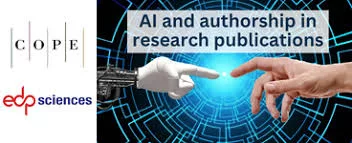In the fast-evolving landscape of academic writing, the integration of artificial intelligence has become both a boon and a potential ethical minefield. This article delves into the intricacies of using AI in dissertation writing, emphasizing the importance of ethical considerations in this innovative approach.
Introduction
In the digital age, where technology is reshaping every aspect of our lives, the realm of academia is not exempt. The introduction explores the fundamental shift brought by AI in dissertation writing, underscoring the need to balance technological advancements with ethical practices.
Understanding AI in Dissertation Writing
Delving deeper, this section demystifies AI tools utilized in dissertation writing, shedding light on their advantages and challenges. It navigates through the evolving landscape of academic support tools, showcasing the transformative power of AI.
The Ethical Dimension
Ethics lies at the heart of AI applications. Defining the ethical dimension in the context of dissertation writing, this section explores why it is imperative to uphold ethical standards in academic AI tools.
Transparency in AI Algorithms
The article proceeds to unravel the significance of transparent algorithms, emphasizing their role in ensuring fairness and accountability in AI-assisted dissertation writing.
Avoiding Bias in AI Writing
However, the incorporation of AI comes with its own set of challenges, particularly concerning biases. This section delves into the potential biases embedded in AI algorithms and proposes strategies to mitigate them in the context of dissertation writing.
Privacy Concerns
As AI tools handle vast amounts of data, privacy becomes a paramount concern. This section navigates the intricacies of safeguarding sensitive information while harnessing the potential of AI in dissertation writing.
Collaboration between Humans and AI
Acknowledging the importance of human input, this section explores the delicate balance required in collaborative efforts between humans and AI in the dissertation writing process.
Ensuring Plagiarism-Free Content
The article scrutinizes AI’s impact on plagiarism prevention and addresses the delicate balance between automation and maintaining the originality of academic work.
Future Trends in AI and Dissertation Writing
Looking ahead, this section explores the emerging technologies in AI and their potential impact on the future of dissertation writing. It anticipates advancements and foresees challenges in the evolving landscape.
Case Studies
To illustrate the practical implications, case studies showcase instances where AI integration in dissertation writing has been successful, emphasizing the lessons learned from ethical considerations.
Recommendations for Ethical AI Use
This section provides practical guidelines for researchers and writers, promoting ethical AI practices in the academic sphere.
Expert Opinions
Insights from experts offer diverse perspectives on AI ethics in dissertation writing, contributing to a well-rounded understanding of the topic.
Challenges and Solutions
Addressing common challenges in implementing ethical AI, this section proposes solutions for fostering a more responsible and accountable AI environment in dissertation writing.
The Human Touch
Amidst the technological surge, the irreplaceable role of human intellect is highlighted, emphasizing the necessity of balancing AI tools with human creativity in dissertation writing.
Conclusion
Summarizing the key takeaways, the conclusion underscores the significance of ethical considerations in AI-assisted dissertation writing, urging for a harmonious blend of technology and human values.
FAQs
- Is using AI in dissertation writing ethical?
- Yes, if employed responsibly. Ethical considerations should guide the use of AI tools to enhance rather than replace human intellect.
- How can biases in AI algorithms be mitigated in dissertation writing?
- Mitigating biases involves continuous monitoring, diverse training data, and implementing fairness-enhancing algorithms.
- What privacy measures should be taken when using AI in dissertation writing?
- Strict data protection protocols, anonymization of sensitive information, and compliance with privacy regulations are crucial.
- Can AI completely replace human creativity in dissertation writing?
- No, AI complements human creativity but cannot replace the nuanced and imaginative aspects of academic writing.
- What guidelines exist for researchers using AI in dissertation writing?
- Researchers should adhere to ethical guidelines, ensuring transparency, fairness, and accountability in the use of AI tools.









